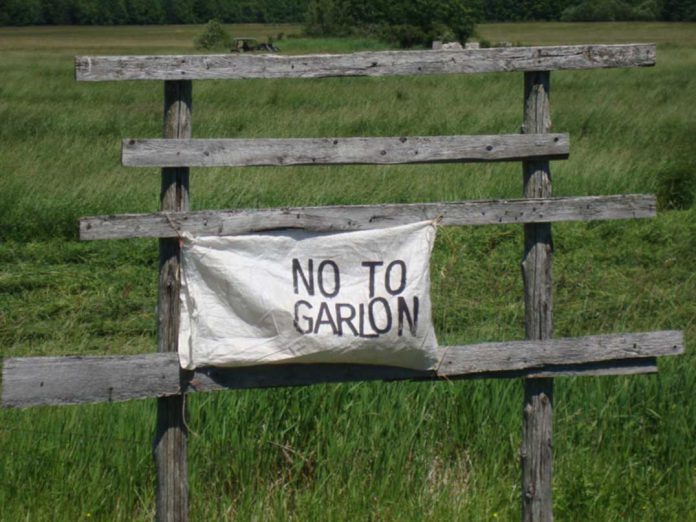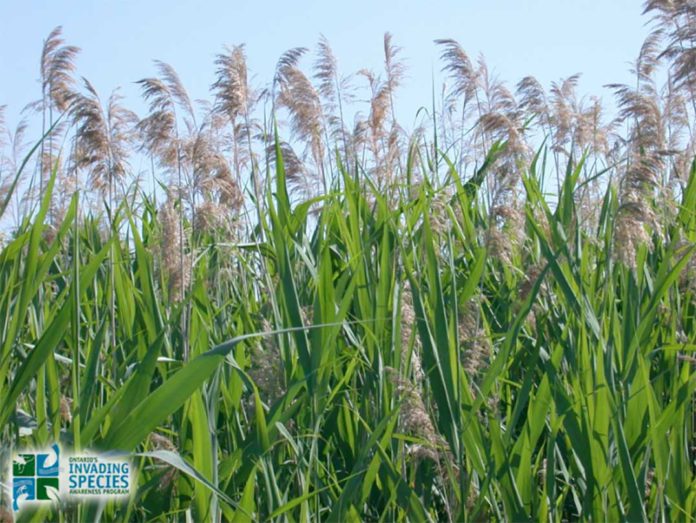MINDEMOYA—A Gore Bay business and the council for the municipality of Central Manitoulin are opposed to proposed changes in the Ministry of Natural Resources and Forestry (MNRF) Aggregate Resources Act, that would see an increase in annual extraction fees.
“I’ll put forward the motion (in opposition to this proposed change),” said Councillor Derek Stephens, at a Central Manitoulin council meeting last week. “This is just another little thing the province is doing to put more money in their coffers. The province may be making more money with this, but we (municipality) will be losing out.”
“I go along with what Derek said,” stated Councillor Pat MacDonald. “I see under the exceptions in this legislation that provincial ministries would not have to pay (the minimum fee or any portion of the fee that would be disbursed back to the Crown). I don’t understand why we would not get the same exceptions as the province is getting.”
“It is a tax,” stated Councillor Dale Scott.
“A hidden tax,” said Councillor Stephens.
Council passed a motion that “the municipality write to the MNRF Resource Development Section, stating the municipality’s opposition to proposed changes to Regulation 244/97 under the Aggregate Resources Act, that would see an increase in annual extractions, as the increases will costs the municipality more money when carrying out infrastructure work.”
Randy Noble of H and R Noble Construction told the Recorder that with the increases, companies like this have to add a cost of every load they provide to recoup costs. He explained the increase on pit licences and royalties his company and others have to pay is over 172 percent plus a cost of living adjustment after 2020. The royalty payable for gravel sold with the changes will go from 11.5 cents a tonne to 19.8 cents a tonne. And a Class A licence increases from $400 to $689.
“Up until for anything taken out of the pits it is 11.5 cents a tonne, and now this is being increased to 19.8 a ton, so an increase of about 70 percent,” stated Mr. Noble. His company uses a pit in McKerrow and Sault Ste. Marie, and at both places the pit operators have also sent letters of concern to the province on the proposed changes.
“For all the pits I ran last year I had to pay over $14,000, and this year it will be between $21,000-$22,000,” said Mr. Noble.
Companies and municipalities received a notice from the MNRF dated March 17, 2017 on the proposed changes to fees and royalties re: pits and quarries. “The ministry is proposing to increase, equalize and index annual aggregate fees and royalties by amending Regulation 244/7 under the Aggregate Resources Act.”
“As the holder of a licence or permit under the act, these changes will be important to you and your business. The ministry would like to ensure that you are aware of the changes proposed and how you can comment on them. The proposed changes are described in the attachment to this letter.
A notice regarding the proposed changes has also been posted on the Regulatory Registry for consultation for a period of 45 days ending on May 1, 2017 (visit www.ontariocanada.com/registry and look under “Current Proposals”).
The proposed changes to Regulation 244/97 under the Aggregate Resources Act regarding aggregate fees and royalties includes: Proposed annual fees for Licences and issuance fees for wayside permits: Holders of Class A licences would pay an annual fee of 19.8 cents per tonne or $689, whichever is greater (currently 11.5 cents per tonne or minimum $400); Holders of Class B licences would pay an annual fee of 19.8 cents per tonne or $344, whichever is greater (currently 11.5 cents per tonne or minimum $200); Applicants for wayside permits are required to pay an issuance fee of 19.8 cents per tonne (based on the maximum amount authorized on the permit) or $689, whichever is greater (currently 11.5 cents per tonne or minimum $400).
Annual fees collected from Class A and Class B licences and issuance fees for wayside permits are disbursed to parties as follows: local municipality, 12 cents per tonne (currently 12/23); county or regional municipality, three cents per tonne (currently 5/23); Aggregate Resources Trust, for rehabilitation and research 0.6 cents per tonne (currently 1/23); provincial government (remainder, minimum 4.2 cents per tonne).
Proposed annual fees for aggregate permits: sites authorized to remove over 20,000 tonnes per year would pay 19.8 cents 26.52 per yard per tonne or $689, whichever is greater (currently flat rate of $200 per year); sites authorized to remove 20,000 tonnes per year or less would pay 19.8 cents per tonne or $344, whichever is greater (currently flat rate of $200 per year).
The exceptions under the proposed changes would include that provincial ministries would not pay the minimum fee or any portion of the fee that would be disbursed back to the Crown; permits involving provincial projects and forest access roads on Crown land open to the public will not be required to pay the municipal portion in areas where there is no municipality. However, they will always pay at least the minimum rate.
The proposed regulatory changes to annual licence fees and annual permit fees would come into effect on July 1, 2017. Should Bill 39 (the Aggregate Resources and Mining Modernization Act) pass, the ministry intends to phase-in royalty payments on existing ARA sites removing material that is also subject to a mining lease. This phase-in would begin in 1919 and extend over a three-year period.





